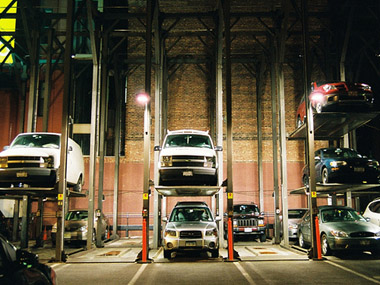- not running 2020/21‚Ä®
The aim of module is to encourage students to engage with the literature and theoretical debates concerning urban conditions and environments categorized as ‚Äėprecarious‚Äô. The module is structured through 3 aims:
1) to explore questions of precarity and the uncertain urban future;
2) to evaluate how public spaces are negotiated;
3) and to rethink the relationship between people and work in urban contexts.
This module focuses on everyday politics of uncertainty, adaptation and improvisation taking place in cities undergoing forms of austerity, changing labour conditions, and scarcity of resources. Traveling theoretically and empirically across cities of the global North and South, we will explore three main themes: the shifting relationship between young people and work, and the debates concerning flexible, temporary, and vulnerable conditions of work and service provision from informal to sharing economies; the role of creative genres of embodied expression in articulating narratives of struggle and political agency; and how different public spaces in the city are re-appropriated, imagined, and occupied in precarious times.
Selected reading:
Alcinda Honwana 2012, The Time of Youth: Work, Politics, and Social Change in Africa. Kumarian Press.
Amin, Ash 2014. ‚ÄúLively Infrastructure‚ÄĚ, Theory, Culture and Society, Vol. 31 (7/8), pp. 137-161.
Borden, Iain 2001. Skateboarding, Space and the City: Architecture and the Body. Bloomsbury Publishing: London.
Hall, Suzanne 2015. ‚ÄėSuper-diverse Street: A ‚Äėtrans-ethnography‚Äô across migrant localities‚Äô, Ethnic and Racial Studies, vol. 38, no. 1, pp. 22-37.
Lewis, H., P. Dwyer, S. Hodkinson, and L. Waite. 2015. Hyper-Precarious Lives: Migrants, Work and Forced Labour in the Global North. Progress in Human Geography 39 (5): 580‚Äď600.
Millar KM (2014) The precarious present: Wageless labour and disrupted life in Rio de Janeiro. Cultural Anthropology 29: 32‚Äď53.
Richardson, L., 2015. Performing the sharing economy. Geoforum, 67, 121-129.doi:10.1016/j.geoforum.2015.11.004.
Roy, Ananya 2011. ‚Äė‚ÄėSlumdog Cities: Rethinking Subaltern Urbanism.‚Äô‚Äô International Journal of Urban and Regional Research 35, no. 2: 223-238.
Thieme, T.A. 2013. The ‚Äėhustle‚Äô amongst youth entrepreneurs in Mathare‚Äôs informal waste economy, Journal of Eastern African Studies7(3): 389-412.
Vasudevan, Alex 2014, ‚ÄúThe Makeshift City: Towards a Global Geography of Squatting‚ÄĚ, Progress in Geography.
Vigh, Henrik 2010. ‚ÄúYouth Mobilisation as Social Navigation: Reflections on the concept of dubriagem‚ÄĚ, Cadernos de Estudos Africanos, 140-164.
Weiss, Brad 2009. Street Dreams and Hip Hop Barbershops: Global Fantasy in Urban Tanzania, Indiana University Press: Bloomington.
‚ÄÉ
